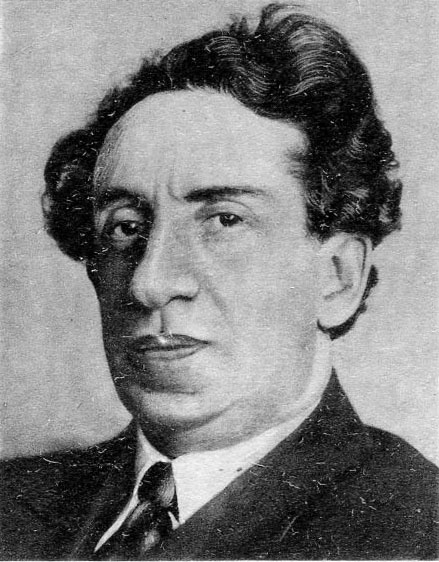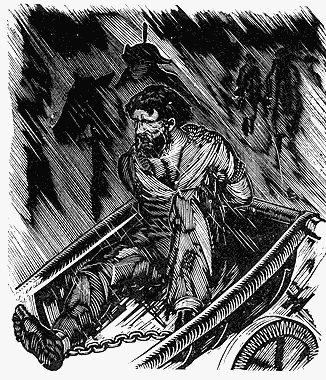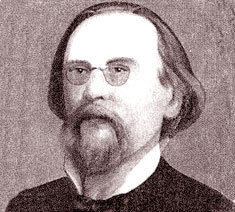|
List Of People From Perm
This is a list of notable people who were born or have lived in Perm (1940–1957: ''Molotov''), Russia. Born in Perm 18th century 1701–1800 * Feodor Pryanishnikov (1793–1867), Russian actual privy councillor and postal administrator 19th century 1801–1900 * Dmitry Smyshlyayev (1828–1893), Russian historian, ethnographer and politician * Ivan Larionov (1830–1889), Russian composer, writer and folklorist * Dmitry Maksutov (1832–1889), Imperial Russian Navy rear-admiral * Pyotr Vereshchagin (1834–1886), Russian landscape and cityscape painter * Vasily Vereshchagin (1835–1909), Russian portraitist, history painter and illustrator * Peter Struve (1870–1944), Russian political economist, philosopher and editor * Olga Lepeshinskaya (1871–1963), Soviet biologist * Mikhail Osorgin (1878–1942), Russian writer, journalist, and essayist * Vasily Kamensky (1884–1961), Russian Futurist poet, playwright and artist * Ariy Pazovsky (1887 ... [...More Info...] [...Related Items...] OR: [Wikipedia] [Google] [Baidu] |
Coat Of Arms Of Perm
The coat of arms of Perm ( rus, Герб Перми) is the official municipal coat of arms of Perm, Russia, Perm, Russia. The current design, adopted on 9 June 1998, features a red field (heraldry), field with a silver bear with a yellow Bible resting on its back and a white four-pointed star above. The design is very similar to the coat of arms of Perm Krai. Several different designs have served as the arms of the city. The first coat of arms was adopted in 1783 and was changed in 1969, during Soviet times. The current coat of arms is a modified version of the 1783 coat of arms. Design and symbolism The bear symbolizes the abundance of animals that live in the area's forests. It is colored silver to symbolize natural resources, such as metal, salt, marble, and other stones, that can be found in the area of the city. The bear holds a special significance for Komi peoples, who lived in the area. Tales, songs, and legends were written about the creature. Fangs and claws were worn ... [...More Info...] [...Related Items...] OR: [Wikipedia] [Google] [Baidu] |
Kristina Alikina 28
Kristina may refer to: Places *the Swedish name of Ristiina, a town in Finland People *the Swedish name of Christina of Sweden * Kristina (born 1987), Slovak singer *Kristina Adolphson (born 1937), Swedish actress *Kristina Apgar (born 1985), American actress *Kristina Bach (born 1962), German singer and music producer * Kristina Bakarandze (born 1998), Georgia-born Azerbaijani footballer *Kristina Bannikova (born 1991), Estonian footballer *Kristina Barrois (born 1981), German tennis player *Kristina Benić (born 1988), Croatian basketball player *Kristina Boden, American film and television editor * Kristina Brenk (1911–2009), Slovene author *Kristina Carlson (born 1949), Finnish author *Kristina Clonan (born 1998), Australian cyclist *Kristina Dovydaitytė (born 1985), Lithuanian badminton player *Kristina Dörfer (born 1984), German singer and actress *Kristina Đukić (2000–2021), Serbian YouTuber and livestreamer *Kristina Elez (born 1987), Croatian handball player *Krist ... [...More Info...] [...Related Items...] OR: [Wikipedia] [Google] [Baidu] |
Victor Oreshnikov
Victor Mikhailovich Oreshnikov (russian: Виктор Михайлович Орешников) (January 7 ( O.S. January 20), 1904, Perm – March 15, 1987, Leningrad) was a Soviet Russian painter, People's Artist of the USSR, active member of the Soviet Academy of Arts (1954–1987), Stalin Prize winner, rector of Repin Institute of Arts (1953–1978). Biography In 1927 he graduated from the Leningrad VHUTEIN in workshop of Kuzma Petrov-Vodkin. In 1930-1987 he taught in the Repin Institute of Arts. PhD in Art History (1937). Doctor of Fine Arts (1948). Victor Oreshnikov was twice awarded the Stalin Prize (1948, 1950), Order of Lenin, Order of the Red Banner of Labour, Order of the Badge of Honour, and numerous medals. Solo exhibitions of the artist was held in Leningrad (1954, 1974, 1985) and Moscow (1975). Pupils * Irina Getmanskaya * Boris Korneev * Alexander Koroviakov * Elena Kostenko * Victor Otiev * Nikolai Pozdneev * Maria Rudnitskaya * Alexander Sokolov * ... [...More Info...] [...Related Items...] OR: [Wikipedia] [Google] [Baidu] |
Nikolay Moiseyev
Nikolay Dmitriyevich Moiseyev (russian: Никола́й Дми́триевич Моисе́ев; December 3(16), 1902 in Perm – December 6, 1955 in Moscow) was a Soviet astronomer and expert in celestial mechanics. In 1938, he became the chairman of the department of celestial mechanics at Moscow State University and worked on this position until his death. His main works were devoted to mathematical methods of celestial calculations and theory of comet formation. He also taught higher mathematics in Zhukovsky Military Academy and was a colonel-engineer of Air forces. He was the director of State Astronomic Institute named by Sternberg (1939-1943) and organized the national system of radio-signals for the exact time. His awards include Order of Lenin, Order of the Great Patriotic War and two Red Stars. The crater Moiseev on the Moon is named after him. A minor planet 3080 Moisseiev discovered by Soviet astronomer Pelageya Shajn Pelageya Fedorovna Shajn ... [...More Info...] [...Related Items...] OR: [Wikipedia] [Google] [Baidu] |
Ariy Pazovsky
Ariy Moiseyevich Pazovsky (Арий Моисеевич Пазовский) ( in Perm – 6 January 1953 in Moscow), was a Russian Jewish conductor. He was a junior conductor at the Bolshoi from 1923–1928, and then director 1943–1948. As a conductor of the Bolshoi Opera, he is credited with having returned parts of Modest Mussorgsky's opera '' Boris Godunov'' which had been censored in the Russian Empire. On his arrival in 1943 Pazovsky was required to enliven the repertoire with some 19th-century operas, and thus had to postpone Prokofiev's ''War and Peace ''War and Peace'' (russian: Война и мир, translit=Voyna i mir; pre-reform Russian: ; ) is a literary work by the Russian author Leo Tolstoy that mixes fictional narrative with chapters on history and philosophy. It was first published ...'', but made this good with putting on Prokofiev's ''Cinderella''.The Record collector: 46 2001 "Pazovsky (who arrived for the second season) was a conductor of exception ... [...More Info...] [...Related Items...] OR: [Wikipedia] [Google] [Baidu] |
Vasily Kamensky
Vasily Vasilyevich Kamensky (russian: Васи́лий Васи́льевич Каме́нский; – November 11, 1961) was a Russian Futurist poet, playwright, and artist as well as one of the first Russian aviators. Biography Kamensky was born in Perm, where his father was an inspector of goldfields. (The story that he was born on a boat on the Kama River, which he himself promoted and recounts in his memoirs, is untrue.) He lost his parents at the age of five and went to live in Perm with his aunt, whose husband piloted steam tugs on the river; he later wrote "My whole childhood took place in a house on the Kama wharf among tugs, barges, rafts, boats, stevedores, sailors, bargees, captains..." He left school in 1900, and from 1902 to 1906 worked as a railroad clerk. In 1904 he began to contribute to the newspaper ''Permskii Krai'', publishing poems and notices; at the newspaper he met local Marxists and developed his own leftist political orientation. At this time he als ... [...More Info...] [...Related Items...] OR: [Wikipedia] [Google] [Baidu] |
Olga Lepeshinskaya (biologist)
Olga Borisovna Lepeshinskaya (russian: Ольга Борисовна Лепешинская) born as Protopopova (russian: Протопопова) (August 18, 1871 – October 2, 1963), was a Soviet pseudo-scientist, who advanced her career as a biologist in the USSR Academy of Medical Sciences through fraudulent claims and personal ties with Vladimir Lenin, Joseph Stalin, Trofim Lysenko and Alexander Oparin. She rejected genetics and was an advocate of spontaneous generation of life from inanimate matter. Biography Lepeshinskaya completed her study as a feldsher in St. Petersburg in 1887 and practised at various places in Siberia. She joined a Marxist group in St Petersburg in 1894, and married a fellow Marxist, Panteleimon Nikolaievich Lepeshinsky (1868-1944), a priest's son who was expelled from St Petersburg University in 1895 for his political activities. They were both arrested and exiled in 1897, for three years, to Yermakovsk, in Siberia, 20 miles from Minusinsk, where L ... [...More Info...] [...Related Items...] OR: [Wikipedia] [Google] [Baidu] |
Peter Berngardovich Struve
Peter (or Pyotr or Petr) Berngardovich Struve (russian: Пётр Бернга́рдович Стру́ве; pronounced ; 26 January 1870 in Perm – 22 February 1944 in Paris) was a Russian political economist, philosopher, historian and editor. He started out as a Marxist, later became a liberal and after the Bolshevik Revolution joined the White movement. From 1920, he lived in exile in Paris, where he was a prominent critic of Russian Communism. Biography Marxist theoretician Peter Struve is probably the best known member of the Russian branch of the Struve family. Son of Bernhard Struve (Astrakhan and later Perm governor) and grandson of astronomer Friedrich Georg Wilhelm von Struve, he entered the Natural Sciences Department of the University of Saint Petersburg in 1889 and transferred to its law school in 1890. While there, he became interested in Marxism, attended Marxist and narodniki (populist) meetings (where he met his future opponent Vladimir Lenin) and wrote ... [...More Info...] [...Related Items...] OR: [Wikipedia] [Google] [Baidu] |
Vasily Petrovich Vereshchagin
Vasily Petrovich Vereshchagin (russian: Василий Петрович Верещагин; 13 January 1835, in Perm – 22 October 1909, in Saint Petersburg) was a Russian portraitist, history painter and illustrator. Biography His father, Pyotr Prokopovich (1795-1843) and grandfather, Prokopy Danilovich (1764-c.1811) were painters. His brothers, Pyotr and Mitrofan (1842-1894) became painters as well. His first art lessons came from his father while he was attending the public schools. He also worked with his maternal grandfather, a local icon painter named Ivan Babin. In 1856, he enrolled at the Imperial Academy of Arts and studied with Alexey Markov. From Russian WikiSource. He remained there for six years and was awarded a gold medal for his painting of Sophia of Lithuania at the wedding of her son, Vasily the Blind. Later, thanks to a stipend from the Academy, he was able to study in Europe, especially Rome, where he copied the Old Masters, and won a gold medal at the I ... [...More Info...] [...Related Items...] OR: [Wikipedia] [Google] [Baidu] |
Pyotr Vereshchagin
Pyotr Petrovich Vereshchagin (Russian: Пётр Петрович Верещагин; 14 January 1834/36 in Perm – 16 January 1886 in Perm) was a Russian landscape and cityscape painter in the Academic style. He was the first to paint plein-air in the wilderness of the Urals. Biography His father, Pyotr Prokopovich (1795–1843) and grandfather, Prokopy Danilovich (1764-c.1811) were painters. His brothers, Vasily and Mitrofan (1842–1894) became painters as well. He was not related to the well-known military painter, Vasily Vasilyevich Vereshchagin. His father was his first teacher. Later he studied with his maternal grandfather, a local icon painter named Ivan Babin. From 1858 to 1865, he was enrolled at the Imperial Academy of Arts, where his most influential instructor was Sokrat Vorobiev, a landscape painter who had spent many years in Italy. [...More Info...] [...Related Items...] OR: [Wikipedia] [Google] [Baidu] |
Dmitry Petrovich Maksutov
Prince Dmitry Petrovich Maksutov (russian: Дми́трий Петро́вич Максу́тов, May 10, 1832 – March 21, 1889) was an Imperial Russian Navy rear-admiral who was the last Governor of Russian America (1863–1867). He has streets dedicated to his memory in Sitka and Petropavlovsk-Kamchatsky. Maksutov was born in the city of Perm. In 1840, he enrolled in Naval Cadets Corps, which he graduated in 1847 in the rank of naval cadet. Maksutov was promoted to the rank of lieutenant in March 1851, was assigned to the 46th division and left for the Russian Far East. As the Crimean War broke out, he was transferred to Petropavlovsk in June 1854. Dmitry and his two brothers—Pavel and Alexander—took part in the war. Pavel Maksutov served in the Black Sea Fleet and was on board the battleship ''Paris'' during the Battle of Sinop, while Alexander and Dmitry took part in the defense of Petropavlovsk during the siege of Petropavlovsk. Dmitry Maksutov c ... [...More Info...] [...Related Items...] OR: [Wikipedia] [Google] [Baidu] |
Ivan Larionov
Ivan Petrovich Larionov (russian: Ива́н Петро́вич Ларио́нов; January 23, 1830 – April 22, 1889) was a Russian composer, writer and folklorist. He is mostly remembered for the famous song "Kalinka", which he wrote in 1860. Larionov was born to a noble family in Perm, and studied music in Moscow. He died in Saratov in 1889, from stomach cancer Stomach cancer, also known as gastric cancer, is a cancer that develops from the lining of the stomach. Most cases of stomach cancers are gastric carcinomas, which can be divided into a number of subtypes, including gastric adenocarcinomas. Lymph .... References External links * * * 1830 births 1889 deaths Musicians from Perm, Russia People from Permsky Uyezd 19th-century composers 19th-century male musicians Russian folklorists Russian male composers Russian male writers Deaths from stomach cancer Writers from Perm, Russia {{Russia-composer-stub ... [...More Info...] [...Related Items...] OR: [Wikipedia] [Google] [Baidu] |
_(1783).png)




